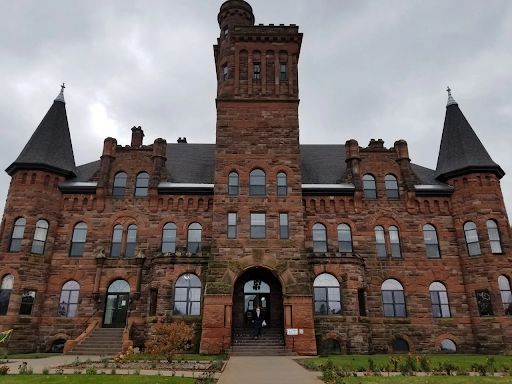Prisons
Baraga Correctional Facility
13924 Wadaga Road, Baraga, MI
“We call this place Missisppi.”
“I seek to share with you my horrific psychological torments as well as I can. Though, I wish to make it clear–that theirs no segregation in MDOC worser than those at the current facility I am housed at this moment… (Baraga Correctional Facility)”
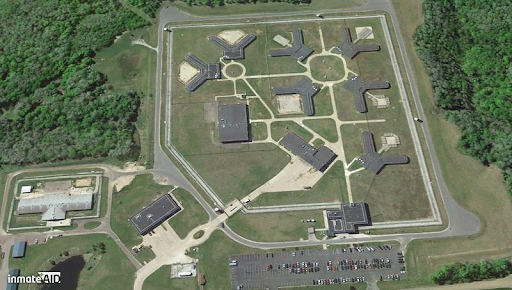
Baraga Correctional Facility is about as far as you can get from anywhere and still be in the United States. Its population stays between 65-80% Black, with all white staff in an extremely remote area hundreds of miles away from the communities of the people that it houses. Accusations of racism are rampant, accusations of abuse heard daily. People in Baraga are often young Black men held past their earliest release dates, robbed of their chances of any programming, therapy, or making parole. Baraga claims to have ZERO people housed there with a mental health problem, while it alone is the cause of so many. People in Baraga are suffering, have been suffering for years, prompting a hunger strike in the summer of 2020, and decades of inside organizing before that.
Ionia Max Correctional Facility
1576 Bluewater Hwy, Ionia, MI 48846
“These COs all think they’re cowboys.”
“When staff hit that steel button with that steel baton it rings so loud inside the cell that you cannot possibly sleep through it. They do this every 30 minutes 24 hours a day. You have to plug your ears with wet toilet paper and sleep when you can. Everyone remains in a constant state of exhaustion. Some hit the button harder than others so you try to get sleep in when you know an officer is working who doesn’t hit it real hard. You cannot establish a sleep pattern, that’s impossible. Most of the time you get sleep in when you’re just too exhausted to stay awake any longer.” -GF
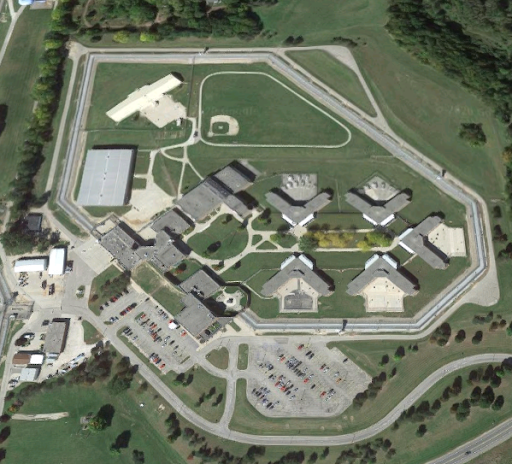
IMAX was designed as a Level 6 Supermax facility, a lock-down so extreme it’s meant to break the spirit of anyone held inside. It isn’t an old prison, built in 1987, so the technology of confinement is up-to-date, the doors are solid steel, it is the end of the line. The staff are oldschool, brutal, and paramilitary. One of their favorite tricks is using the count-reader buttons on the steel doors to deprive people of sleep, all night long.
Many people held there lament COs work 16 hour days in mandatory overtime, stay exhausted, angry, and sometimes drunk. There is little rotation of staff within the facility because of the lack of people to fill the positions, so old wounds fester and tensions are high. Set-ups carried out that are impossible to prove, whispers in the hallway that take years away from people’s lives. Defending yourself turns into assault on staff and the years stack up, the years get lost. In a place so locked down, in a poor prison town, anything is likely to happen. And does.
Alger Correctional Facility
N6141 Industrial Park Drive, Munising, MI 49862
Alger is a segregation facility, first and foremost. It’s easy to get into it, and difficult to get out. One of the most egregious deaths in the MDOC’s history happened in just 2019, when Jonathan Lancaster suffered from dehydration and deteriorating mental illness, and was left to slowly die over a period of a several days in an Alger Observation cell. There is little to no mental health treatment, hundreds of accusations of cover-up, and the standard and well-documented claims of systemic racism.
Then, there is the Hopper. The Hopper is the security reclassification list, moving people in prison out of segregation and into General Population. It is famous for feeling like a merry-go-round of people in and out of lockdown cells, one bed emptying and filling the same day. No focus on rehabilitation, but rather a movement of bodies like livestock.
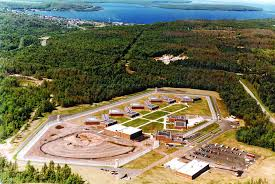
“In my experience, at least 50% of the guys in seg don’t need to be here but there is nowhere in GP to put them. The facility operates at 99% capacity. Say you come to the hole for "threatening" behavior. A favorite tactic because it requires no evidence. You get found guilty (of course), serve your 10 days detention - which has to be done in seg. Then what? They can’t just let you go back to GP - there are no open beds. The only way you can get out is for somebody in GP to get sent to seg. So you sit in here actually hoping for another prisoner’s downfall. It’s sick! So since there is no bed space in GP, what do they do? They claim you are “unable to be managed” in GP and classify you to ad seg, whether its true or not. You get on a waiting list and once a GP bed opens up, voila! You can be effectively managed.” -Steven Wilcox
Chippewa Correctional Facility
4269 M-80, Kincheloe, MI 49784
“Most of the staff members at (U.R.F) Chippewa Prison are family, friends or live around each other, they move and act as a gang. It’s very hard to beat a misconduct or get fair treatment, their is no accountability… this prison is known as (U.R. Fucked) the Chippewa U.R.F. prison has the biggest flaw of systemic racism.” -Carlos Luciano Varnado
Every person in prison in Michigan know’s what URF means. Tucked way up in Kincheloe, where the only thing for miles is another prison across the street, the population of the whole place is 6,000 people and over half of them are people locked up. More than 3,000, not counting the jail. White people staff the prison, Black and brown people fill it, and Chippewa prides themselves on their repression, writing far more tickets than any other facility, and reminding people constantly of their control.
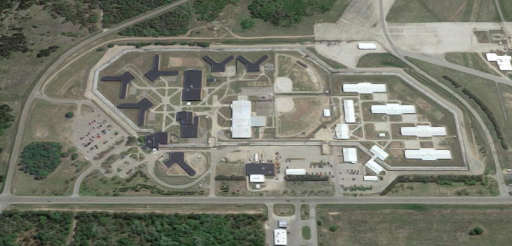
“The first time I stepped off the bus I was told to get in line, n*****. I knew this place was gonna be something else.” -MK
Marquette Branch Prison
1960 US-41, Marquette, MI 49855
As advocates, we hear less from Marquette. When the phone rings at 9pm, or 6am on a Sunday, the call is usually coming from there. It doesn’t mean there’s less happening which harms people—body, mind and spirit—but that they are more prolific at keeping word from getting out. Tucked between Lake Superior and thousands of acres of forestland, calls with people in Marquette drop suddenly, the letters get lost in the mail.
When families cannot afford the 7 hour trip and hotel room for a visit, they cannot see the scars of things that have happened to their loved ones, their sons and fathers and brothers. When we do get word it’s often too late. Several people died by suicide at Marquette last year, and in the years before.
